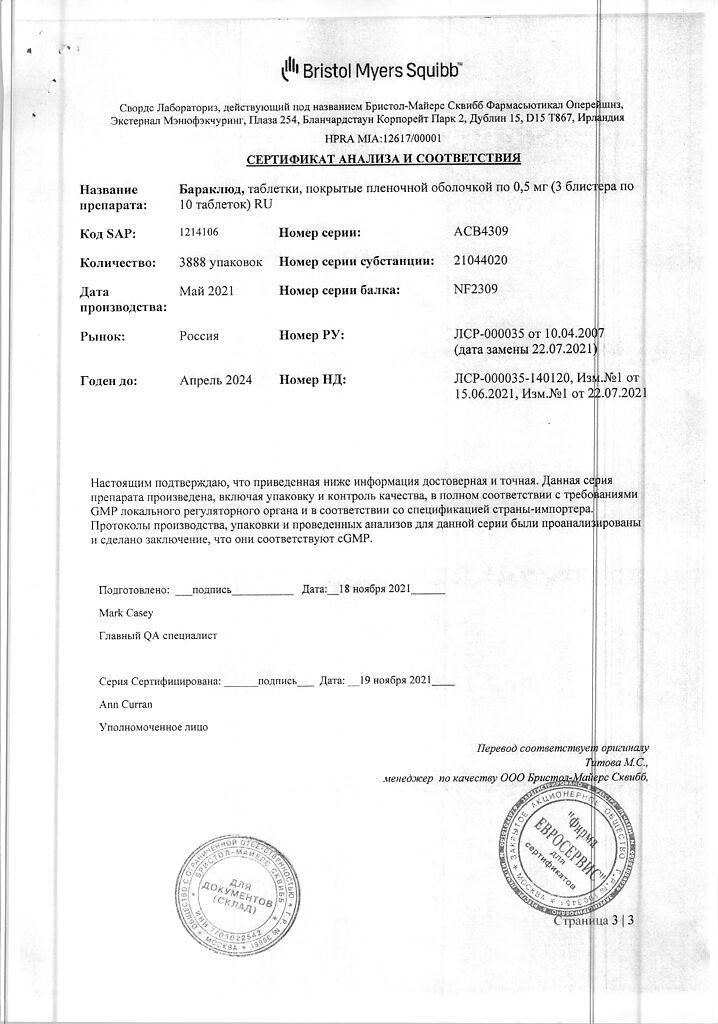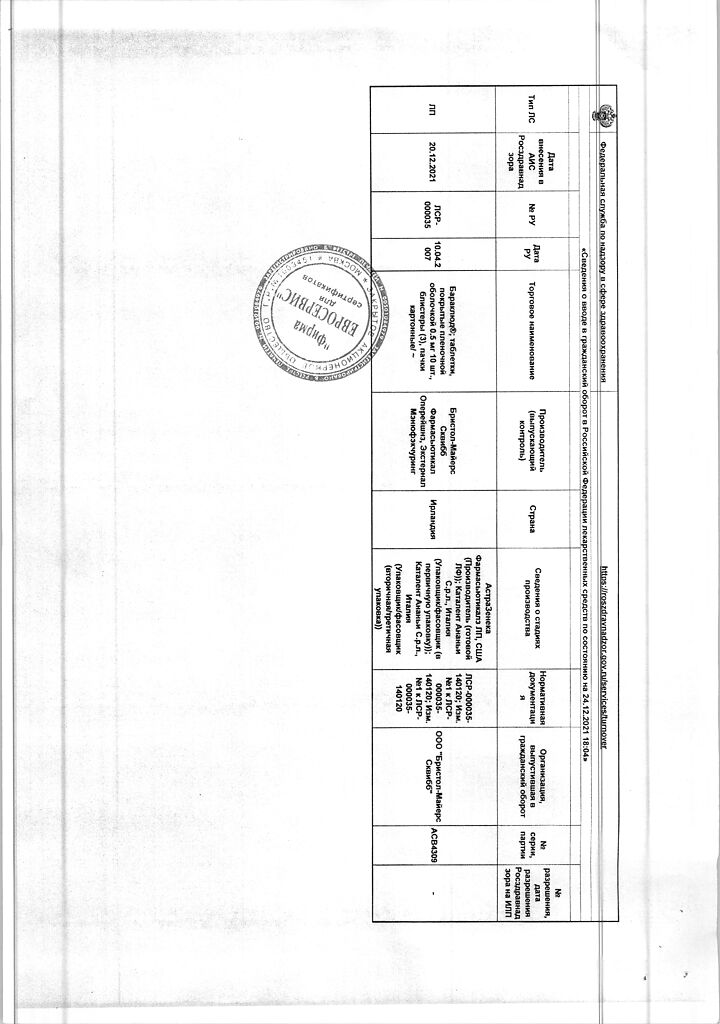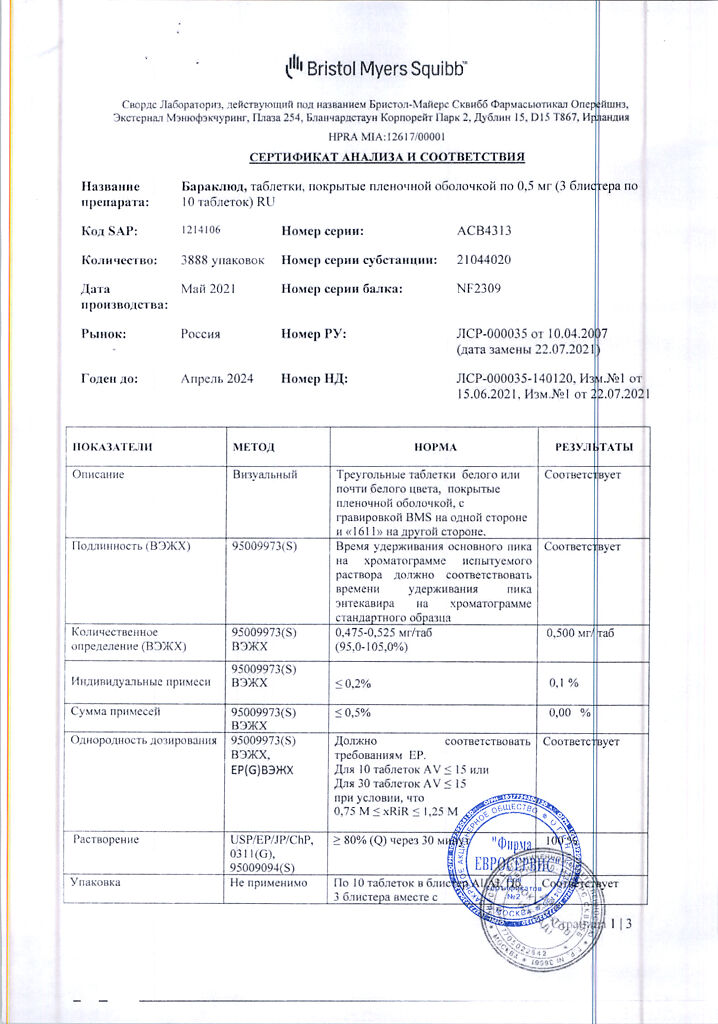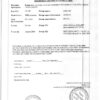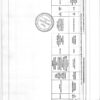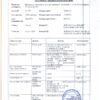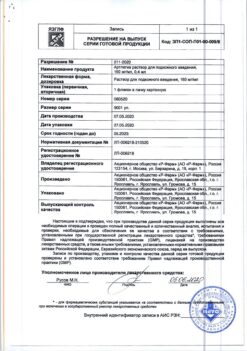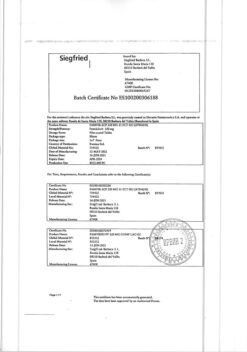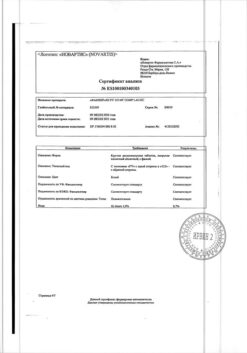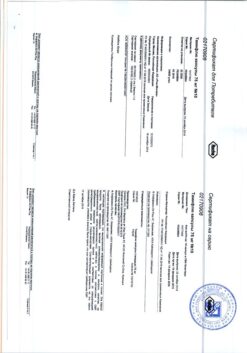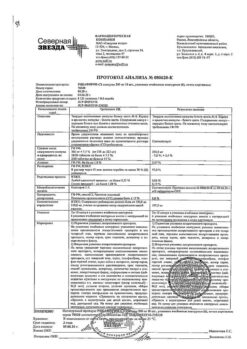No products in the cart.
Description
Liver damage, Hepatitis
Chronic hepatitis B in adults with signs of viral replication and elevated serum transaminase activity (ALT or AST) or in the presence of histological signs of inflammatory process in the liver.
Indications
Indications
Chronic hepatitis B in adults with signs of viral replication and increased levels of serum transaminases (ALT or AST) or in the presence of histological signs of inflammation in the liver.
Pharmacological effect
Pharmacological effect
Baraclude has an antiviral effect.
Special instructions
Special instructions
When treated with nucleoside analogues as monotherapy and in combination with antiretroviral drugs, cases of lactic acidosis and severe hepatomegaly with steatosis have been described, sometimes leading to the death of the patient. Cases of exacerbation of hepatitis after discontinuation of antiviral therapy, including entecavir, have been described. Most of these cases resolved without treatment. However, severe exacerbations, including fatal ones, can develop. The causal relationship of these exacerbations with discontinuation of therapy is unknown. After stopping treatment, liver function should be periodically monitored. If necessary, antiviral therapy can be resumed. It should be taken into account that when prescribing entecavir to patients with HIV co-infection who have not previously received highly active antiretroviral therapy, there may be a risk of developing resistant strains of HIV. Entecavir has not been studied for the treatment of HIV infection and is not recommended for such use,
Patients who have undergone liver transplantation. The safety and effectiveness of entecavir in patients undergoing liver transplantation are unknown. Renal function should be carefully monitored before and during treatment with entecavir in patients who have undergone liver transplantation and are receiving immunosuppressants that may affect renal function, such as cyclosporine and tacrolimus.
General information for patients. Patients should be informed that entecavir therapy does not reduce the risk of transmission of hepatitis B and, therefore, appropriate precautions should be taken.
Active ingredient
Active ingredient
Entecavir
Composition
Composition
1 tablet contains entecavir 500 mcg
Pregnancy
Pregnancy
There are no adequate and well-controlled studies in pregnant women.
Baraclude can be taken during pregnancy if the potential benefit outweighs the potential risk to the fetus.
There is no data on the penetration of entecavir into human milk.
Breastfeeding while using the drug is not recommended.
Contraindications
Contraindications
age under 18 years;
hypersensitivity to the components of the drug Baraklyud.
Side Effects
Side Effects
From the digestive system: rarely (≥ 1/1000, < 1/100) - diarrhea, dyspepsia, nausea, vomiting.
From the side of the central nervous system: often (≥ 1/100, < 1/10) - headache, fatigue; rarely (≥1/1000, <1/100) - insomnia, dizziness, drowsiness.
Post-marketing data (frequency cannot be determined)
Allergic reactions: anaphylactoid reaction.
Dermatological reactions: alopecia, rash.
Interaction
Interaction
Since entecavir is eliminated primarily by the kidneys, concomitant administration of entecavir and drugs that reduce renal function or compete at the level of tubular secretion may increase serum concentrations of entecavir or these drugs.
When entecavir was co-administered with lamivudine, adefovir dipivoxil or tenofovir disoproxil fumarate, no significant drug interactions were identified.
The interactions of entecavir with other drugs that are excreted by the kidneys or affect renal function have not been studied.
Patients should be monitored closely if entecavir is co-administered with these drugs.
Overdose
Overdose
There is limited data on cases of overdose of the drug Baraklyud in patients.
In healthy volunteers receiving the drug in doses up to 20 mg/day. for up to 14 days or in single doses up to 40 mg, there were no unexpected adverse reactions.
Treatment: in case of overdose, careful medical monitoring of the patient’s condition is required.
If necessary, standard supportive therapy is carried out.
Storage conditions
Storage conditions
At a temperature not exceeding 25 °C
Shelf life
Shelf life
2 years
Manufacturer
Manufacturer
AstraZeneca Pharmaceuticals LP, USA
Additional information
| Shelf life | 2 years |
|---|---|
| Conditions of storage | At a temperature not exceeding 25 °C |
| Manufacturer | AstraZeneca Pharmaceuticals LP, USA |
| Medication form | pills |
| Brand | AstraZeneca Pharmaceuticals LP |
Related products
Buy Baraclud, 0.5 mg 30 pcs with delivery to USA, UK, Europe and over 120 other countries.


